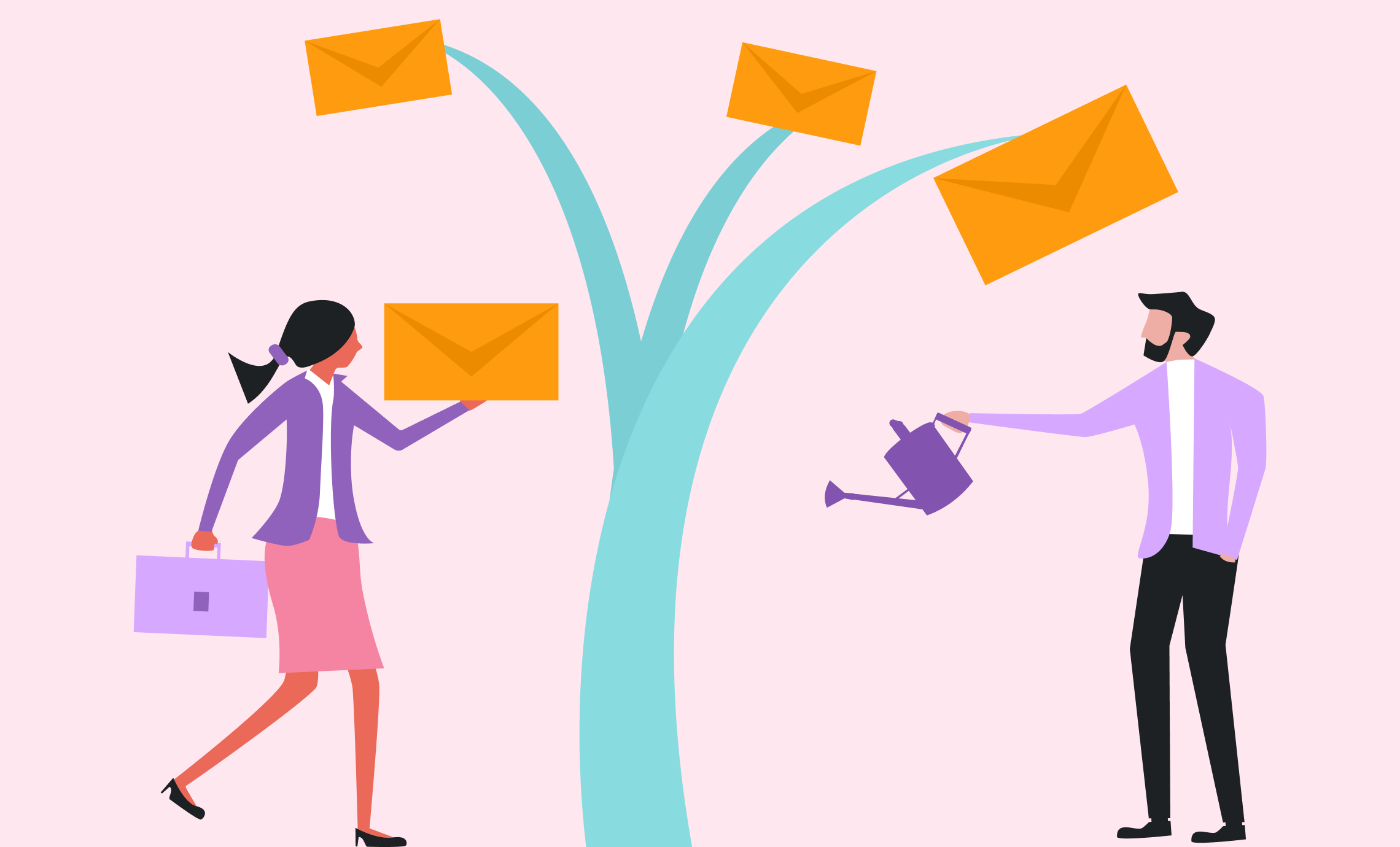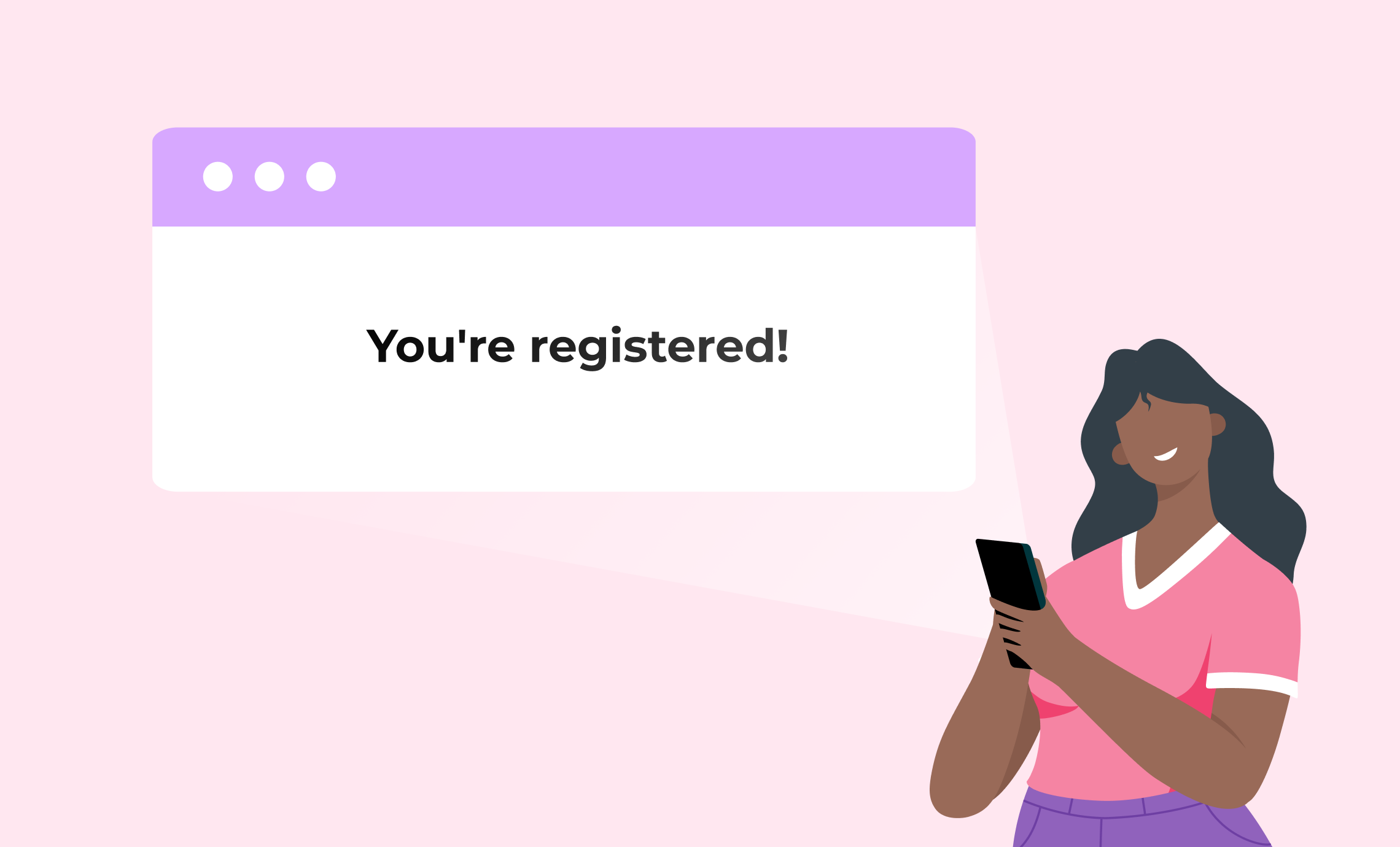The 5 Most Effective Marketing Channels for Promoting Your Event: Insights from Recent Research
It’s fair to argue that, no matter how Herculean your marketing efforts, your event cannot be successful without effective promotion. Steve Jobs once advised, “Master the topic, the message, and the delivery.”
You know your event will deliver value and resonate with your audience. The question is, do they? How can you promote your event to the people who need to know about it, thereby ensuring your success and, possibly, a solution to their problem or pain point?
Short answer: By leveraging the right marketing channels. The top marketing channels, which we will explore in detail, empower event planners and marketers to attract the right attendees, boost engagement, and manage a memorable experience for all involved.
According to Momentive Software’ 2024 Event Trends Study, the top five channels you need to integrate into your event marketing strategy include social media, email marketing, digital ads, event websites, and influencers.
Our team has mined the data to present you with the finer points of these preferred channels, supported by the latest insights for each one, so that you might craft your most effective event marketing strategy to date.
What Different Types of Event Marketing Exist?
Before diving into the specifics, you might want to refresh your knowledge and appreciation of the various types of event marketing and event marketing strategies that have proven successful, no matter the industry or event size and scope.
From there, we can dive into the specifics surrounding the most effective channels for event marketing, starting with the one we all know, though we might not know how to optimize its potential to promote our event to the fullest…
Social Media: The Leading Marketing Channel (47%)
Take it from customer experience expert and speaker Jay Baer, “Content is fire, social media is gasoline.”
No matter how bright your event content marketing might be, you need to ensure that its light shines far and wide; in other words, you need to set it ablaze with social media.
According to our research, nearly half (47%) of event planners identify social media as the most effective marketing channel for promoting events. It’s no surprise, given the reach and engagement potential of platforms like Facebook, Instagram, LinkedIn, and Twitter.
Why Social Media Works
Social media offers real-time engagement, interactive content, and targeted advertising, making it ideal for creating buzz around your event. The use of event-specific hashtags, live streams, and polls can significantly increase awareness and engagement.
Tips for Maximizing Engagement
- Use paid social ads to target specific demographics.
- Create a unique event hashtag and encourage attendees to use it.
- Share behind-the-scenes content, speaker spotlights, and attendee testimonials to generate excitement.
By leveraging social media’s targeting and engagement capabilities, you can reach a broader audience and encourage active participation. Plus, the right person on your team will find this kind of marketing to be fun and energizing.
Email Marketing: Still Going Strong (30%)
We can’t resist this quote from Erik Harbison, Marketing Career Coach & Fractional CMO, “If social media is the cocktail party, then email marketing is the ‘meetup for coffee.’ The original 1 to 1 channel.”
And our research supports this!
Email marketing remains the second most effective channel, with 30% of respondents identifying it as a top method. Despite being one of the older forms of digital marketing, email continues to be relevant because of its personalization and direct communication capabilities. Email marketing: the original “oldie but goodie.”
Why Email is Effective
Email allows you to reach potential attendees directly, providing personalized messages, event updates, and reminders. It’s perfect for nurturing interest and keeping your audience informed.
Email Marketing: Best Practices
We could probably create an entire whitepaper on email marketing best practices but the following will get you started and surely yield positive results:
- Craft compelling subject lines to improve open rates.
- Segment your email list to target different audience groups with tailored messages.
- Pro-tip: Expo Logic’s online event registration software makes it easier to get to know your attendees and empower your marketing team to promote your event with greater precision. For instance, during the registration process, you can ask questions like, “How did you hear about our event?” Or even more granular inquiries, such as, “Which sessions are you most excited to attend?”
- Use automated sequences to nurture potential attendees over time, from registration to event day.
The takeaway? Email marketing is a cost-effective way to maintain ongoing communication with your audience and drive event registrations.
Digital Ads: Boosting Visibility (28%)
Digital ads, identified as the third most effective marketing channel by 28% of respondents are becoming increasingly important for promoting events.
Why Digital Ads Are Impactful
Platforms like Google Ads, Facebook Ads, and retargeting campaigns enable you to reach specific demographics and interests. These ads increase visibility and help capture the attention of potential attendees who may not be reached through other channels.
Tips for Optimizing Ad Spend
- Use A/B testing to determine which ad creatives perform best.
- Implement retargeting ads to re-engage visitors who have shown interest in your event.
- Monitor ad performance regularly and adjust your strategy based on the data.
Digital ads are an excellent way to amplify your reach, especially when used in conjunction with other marketing efforts like social media and email.
Event Websites: A Key Hub for Information (27%)
Having a dedicated event website was highlighted by 27% of respondents as a crucial marketing channel. An event website serves as the central hub for all event-related information, helping to build credibility and trust.
Why Event Websites are Essential
A well-designed website provides potential attendees with details about the event agenda, speakers, registration, and more. It also offers an opportunity to integrate SEO strategies to attract organic traffic.
Strategies for Optimization:
- Ensure the website is mobile-friendly for users on all devices.
- Include clear calls to action (CTAs) to encourage registrations.
- Regularly update the site with fresh content, such as speaker announcements and agenda changes.
An event website acts as the primary source of information and can significantly influence an attendee’s decision to register.
-
- Pro-tip: With Expo Logic’s online event registration software, you access custom branding to match your event’s creative assets — this includes your event website — to your event registration platform, including full customization possibilities.
Influencers: Leveraging Authority (21%)
Influencer marketing is increasingly becoming a valuable tool, with 21% of respondents identifying it as an effective channel for promoting events. Influencers can help extend your reach by tapping into niche audiences that may be interested in your event. Okay, so you might not be able to book Taylor Swift, but you can certainly find influential speakers who will represent a valuable voice to your audience.
How Influencers Can Help
Influencers provide authenticity and credibility, making their followers more likely to trust and engage with your event. They can promote your event through blog posts, social media mentions, or even by serving as speakers.
Best Practices
- Choose influencers whose audience aligns with your target attendees.
- Provide influencers with unique discount codes or affiliate links to track their impact.
- Encourage them to share personal experiences or testimonials about your event.
Collaborating with influencers can add a layer of credibility and help you reach potential attendees who might not be reached through traditional marketing channels.
Channel Event Marketing Success with Expo Logic
See what we did there?
In all seriousness, the 2024 Event Trends Study clearly establishes that combining multiple marketing channels is the most effective way to promote an event successfully.
While social media, email marketing, digital ads, event websites, and influencers each play a unique role in reaching and engaging potential attendees, the smart event organizer will tailor their strategies based on their target audience and available resources, combining these channels for maximum impact.
Finally, don’t forget to track key metrics such as click-through rates, engagement levels, and registration numbers to optimize your future promotions. By leveraging insights from recent research and employing a multi-channel approach, you can effectively promote your next event and drive higher attendance.
Eager to learn more about effective event marketing? Download your copy of the 2024 Events Trends Study today!


